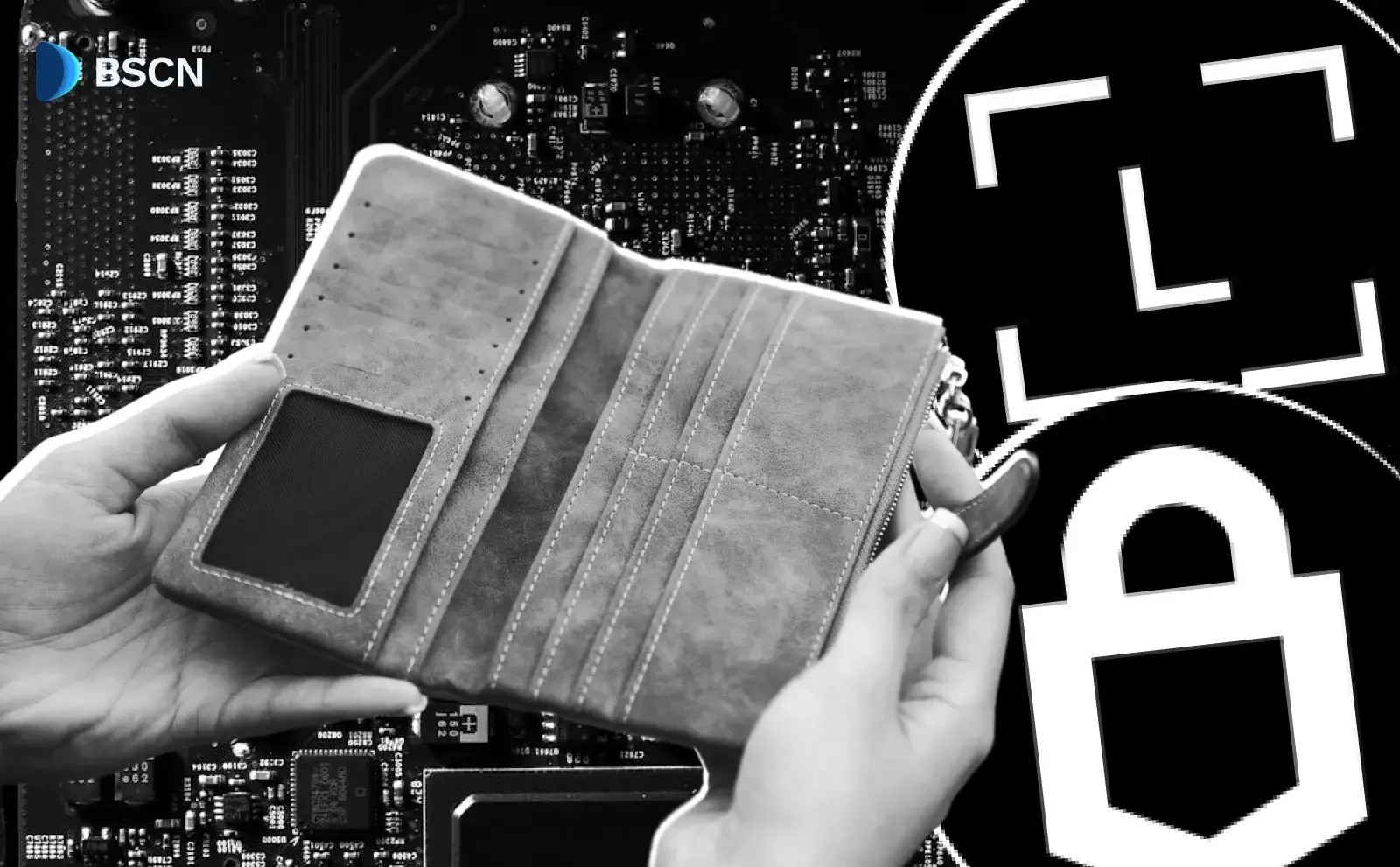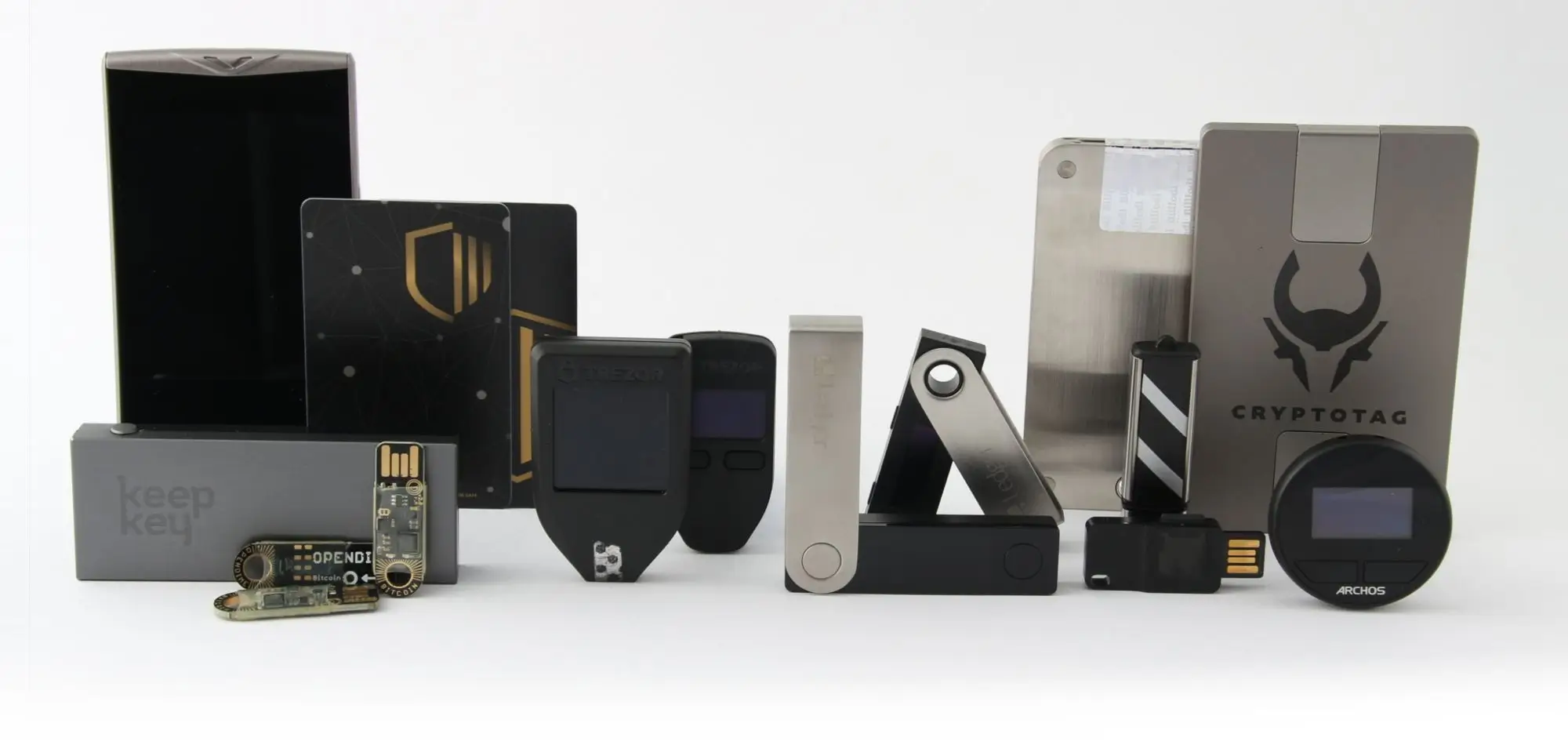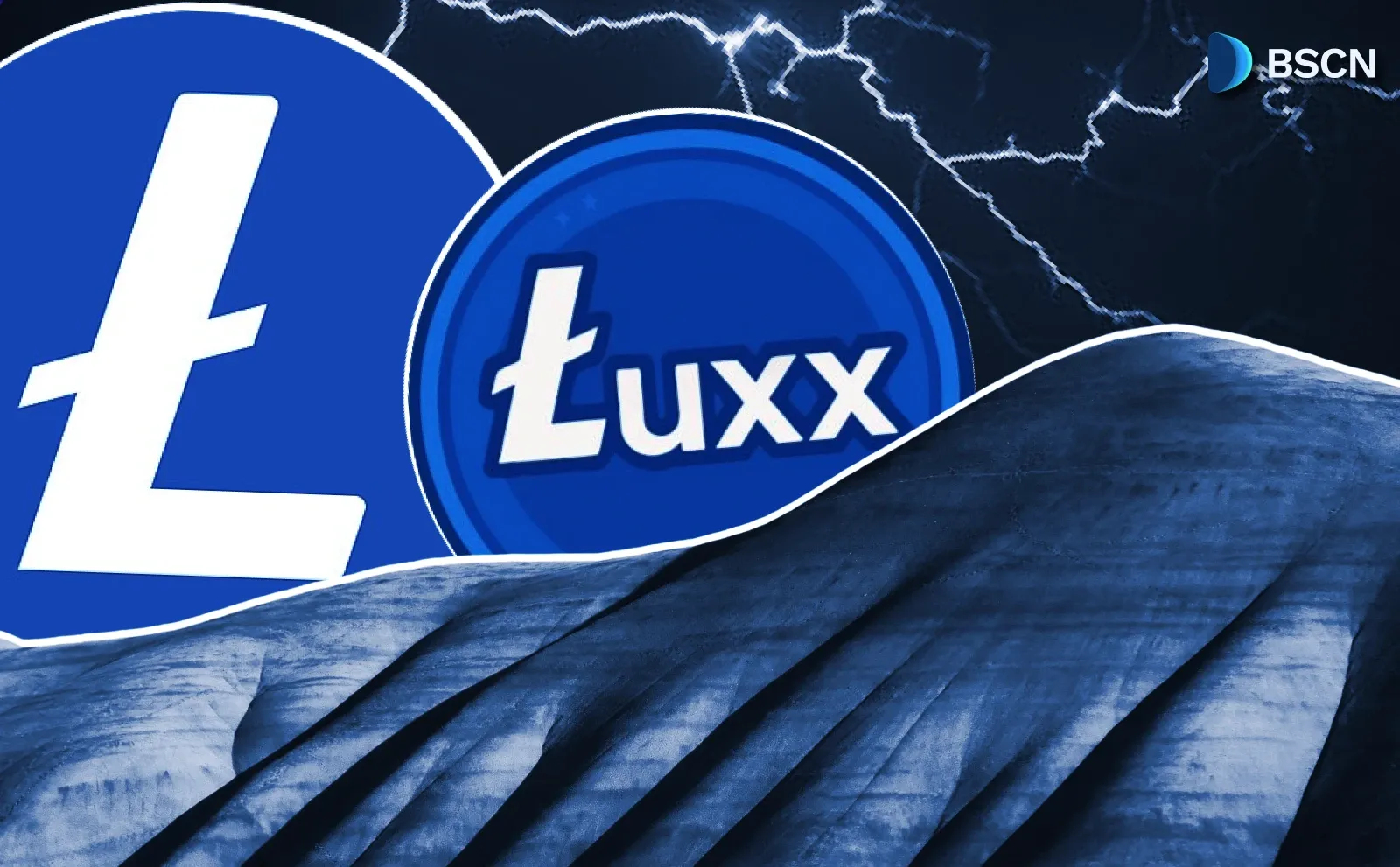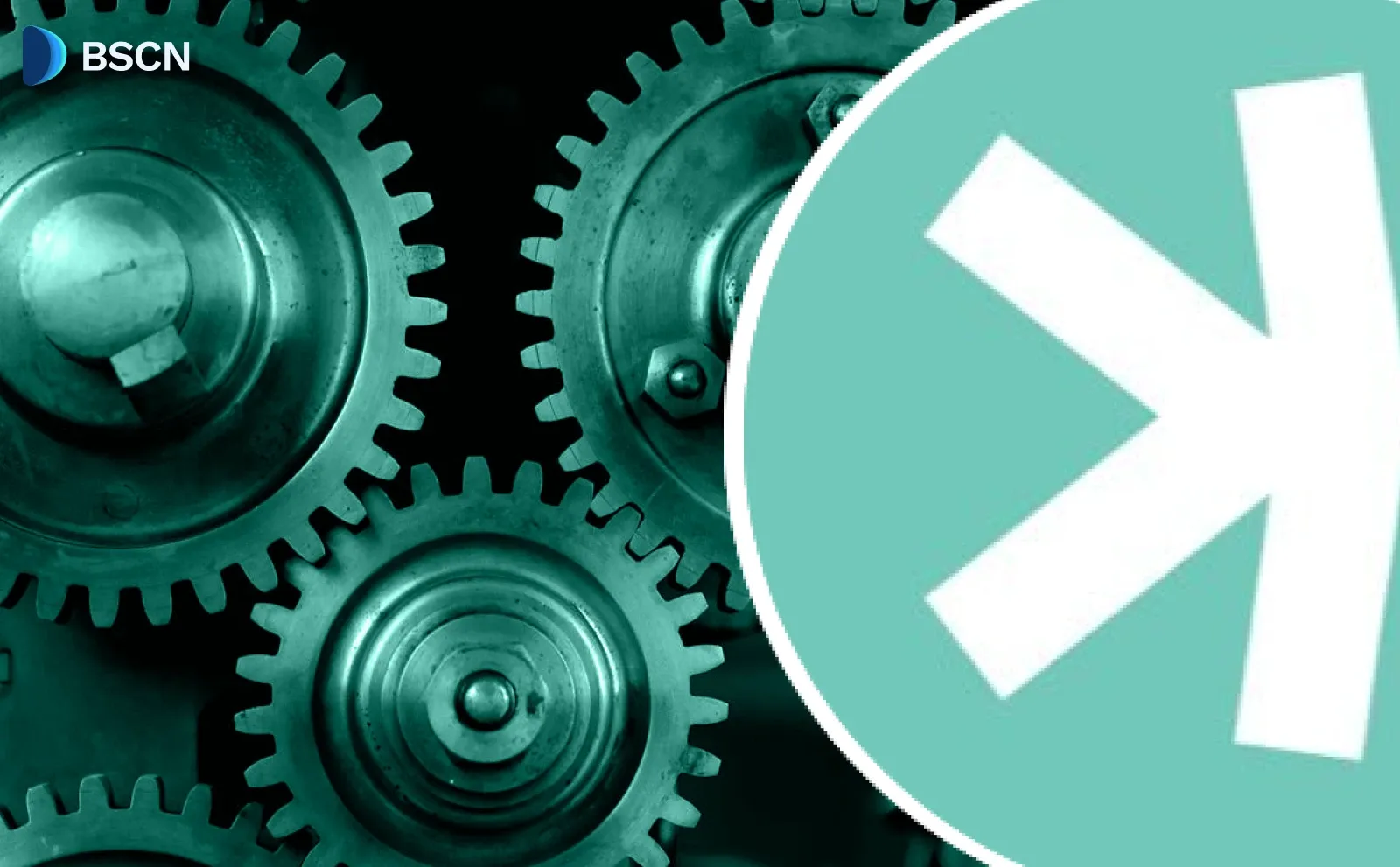Hardware Wallets: What They Are and How They Work

Hardware wallets store crypto private keys offline in secure devices. Learn how they work, their security benefits, and key differences from software wallets.
Crypto Rich
February 4, 2021
Table of Contents
Last revision: October 20, 2025.
A hardware wallet is a physical device that stores your cryptocurrency private keys offline, protecting them from online threats like hacking and malware. The device keeps your keys in an encrypted chip that never connects to the internet, making it one of the most secure storage options available.
If you hold cryptocurrency, protecting it matters. Hardware wallets balance security with usability better than other storage methods.
What Are Cryptocurrency Wallets?
Cryptocurrency wallets don't actually store your coins. They store the cryptographic keys that prove you own specific amounts of cryptocurrency on a blockchain.
Every wallet contains two key types. Public keys function like account numbers that you share to receive funds. Private keys work like passwords that authorize transactions from your wallet.
Anyone with access to your private keys controls your cryptocurrency, making key security the most important aspect of crypto ownership.
Hot Wallets vs Cold Wallets
The crypto community divides wallets into two categories based on internet connectivity.
Hot wallets maintain constant internet connections. Mobile apps, browser extensions, and exchange accounts all qualify as hot wallets. They offer quick access for trading and transactions, but this convenience comes at a cost. Your keys stay exposed to potential online attacks.
Cold wallets operate entirely offline. Paper wallets with printed keys and hardware devices both fall into this category. They require more steps to use but eliminate most online security risks.
How Do Hardware Wallets Work?
Hardware wallets store private keys inside a secure chip that never exposes them to your computer or the internet.
Transaction Process
The signing process happens entirely within the device. When you send cryptocurrency, here's what happens:
- Connect the wallet to your computer or phone
- Create a transaction using wallet software
- Transaction data transfers to the hardware device
- Verify details on the device's screen
- Approve using physical buttons on the device
- The device signs the transaction internally
- The signed transaction returns to your computer
- Your computer broadcasts it to the blockchain
Your private keys never leave the secure chip. Even with malware on your computer, attackers can't access your keys because they never enter the computer's memory.
Why Use a Hardware Wallet?
Hardware wallets solve the main security problems that plague other storage methods.
Protection from Online Threats
Hot wallets face multiple attack vectors. Phishing websites trick users into entering seed phrases. Malware records keystrokes to capture passwords. Clipboard hijackers replace copied addresses with attacker-controlled addresses.
Hardware wallets neutralize these threats. Private keys never touch internet-connected devices, so attackers need physical access to your device to attempt any compromise.
Control Over Your Assets
When you store cryptocurrency on an exchange, the exchange holds your private keys. That means the exchange controls your funds, not you. Exchanges can freeze accounts, suffer hacks, face bankruptcy, or restrict withdrawals.
Hardware wallets give you direct custody. You control when and how your cryptocurrency moves, with no third party able to freeze or seize your funds.
Multi-Chain Support
Modern hardware wallets support dozens of blockchains and hundreds of tokens. You can manage Bitcoin, Ethereum, and various other cryptocurrencies from a single device instead of maintaining separate security solutions for each chain.
What Are the Risks of Hardware Wallets?
No security solution eliminates all risks. Hardware wallets come with their own vulnerabilities.
Physical Loss or Damage
These devices are small. They can break, get lost, or be stolen. Every device generates a recovery phrase during setup, usually 12 or 24 words. This phrase can regenerate your private keys on a new device.
Lose both your wallet and recovery phrase? Your cryptocurrency becomes permanently inaccessible. No one can recover it.
Supply Chain Attacks
Compromised devices pose a real threat. Attackers could intercept hardware wallets during shipping and modify them to leak private keys. This is why security experts recommend buying directly from manufacturers rather than third-party sellers.
Reputable manufacturers use tamper-evident packaging and verification systems. Always verify authenticity before using a new device.
Firmware Vulnerabilities
Recent attacks have exposed firmware risks. Dark Skippy, disclosed in 2024, allows malicious firmware to leak seed phrases through manipulated transaction signatures. After just a few transactions, attackers can reconstruct private keys.
The EUCLEAK vulnerability affects devices using Infineon secure chips, including some Trezor models. While it requires physical access and specialized equipment, the attack exposes weaknesses in hardware attestation.
Buy from manufacturers with transparent security practices and independent audits.
User Error
Hardware wallets can't protect you from your own mistakes.
Common errors include:
- Storing recovery phrases digitally or in cloud services
- Entering seed phrases into phishing websites
- Approving malicious transactions without verification
- Sharing recovery phrases with supposed support representatives
The device provides the security tools. You have to use them correctly.
Physical Coercion
Hardware wallets don't protect against violence. If someone threatens you for your cryptocurrency, the device's security features don't matter. This scenario, sometimes called the five dollar wrench attack, has no technological solution.
Some users create decoy wallets with small amounts or use multisignature setups requiring multiple devices. These approaches add layers of protection, but physical threats remain outside the scope of what hardware can solve.
How to Choose a Hardware Wallet
Several manufacturers produce hardware wallets with different features and security approaches.
Key Features to Consider
When evaluating hardware wallets, certain technical specifications directly affect security and usability.
Screen quality matters. Larger screens make transaction verification easier and reduce the chance of approving malicious transactions. Some budget devices lack screens entirely, creating security vulnerabilities.
Open-source firmware lets independent security researchers audit the code running on your device. Closed-source firmware requires trusting the manufacturer's security claims without verification.
Secure element chips provide hardware-level protection against physical attacks. Standard microcontrollers offer less protection but cost less.
Firmware update policy represents a security tradeoff. Updatable firmware allows patches for newly discovered vulnerabilities but creates supply chain risks. Non-updatable firmware, used by devices like Tangem, prevents malicious updates but can't fix future security flaws.
Backup options vary between devices. Some support only seed phrases. Others add features like Shamir's Secret Sharing, which splits your recovery phrase into multiple pieces.
Connectivity options include USB, Bluetooth, and NFC. Wireless connections add convenience but increase attack surface.
Established and Emerging Manufacturers
Ledger and Trezor pioneered the hardware wallet market. Both companies have operated for over a decade with extensive security scrutiny and maintain the largest user bases.
NGRAVE Zero targets users seeking maximum security with its air-gapped design, 4-inch touchscreen, and EAL7 certification. The device communicates exclusively through QR codes and includes biometric authentication. At over $400, it represents the premium end of the market.
SafePal S1 provides affordable air-gapped storage with a color touchscreen. The device uses QR codes for all communication and supports thousands of cryptocurrencies. Binance-backed SafePal appeals to users seeking budget-friendly cold storage without compromising on essential security features.
Tangem offers hardware wallets in credit card form factor with NFC connectivity. The cards use EAL6+ certified chips and come in sets of 2 or 3 for backup purposes, priced between $45-70. The non-updatable firmware design prioritizes supply chain security over patch flexibility.
Other manufacturers like Foundation, Keystone, Coldcard, and Ellipal target advanced users with enhanced security features. Research any hardware wallet manufacturer before purchasing. Check for independent security audits, company transparency, and community reputation.

How to Use Hardware Wallets Safely
Hardware wallet security depends on how you use them.
During Setup
Proper initialization protects against compromised devices and ensures you can recover your funds.
Never use a pre-initialized device. Your hardware wallet should generate the seed phrase during first use. Devices with pre-written seed phrases are scams.
Write your recovery phrase on paper or metal. Never store it digitally. Don't photograph it, store it in password managers, or enter it into any website or app.
Test your recovery phrase. Most hardware wallets let you verify your backup by entering the words before adding funds.
For Transactions
Every transaction requires careful verification.
Always verify addresses on the hardware wallet screen, not your computer. Malware can modify what you see in wallet software.
Check transaction amounts and recipient addresses before approving. Cryptocurrency transactions typically can't be reversed once broadcast.
Update your device firmware only through official sources. Fake firmware updates can compromise your device.
For Long-Term Storage
Planning for various failure scenarios keeps your holdings secure over time.
Store your hardware wallet and recovery phrase in separate secure locations. If both are stolen together, the thief gains access to your funds.
Consider using a passphrase, also called the 25th word, for additional security. This creates a hidden wallet requiring both your seed phrase and passphrase.
Review your wallet periodically. Check that devices function and recovery phrases remain readable.
Hardware Wallets vs Software Wallets
Software wallets store private keys on internet-connected devices like phones or computers. They're more convenient but far less secure than hardware wallets.
Use software wallets for small amounts you access frequently. Keep larger holdings in hardware wallets. Many users layer their security:
- Exchange accounts for active trading
- Mobile wallets for daily spending
- Hardware wallets for long-term holdings
Your optimal setup depends on how often you transact and your acceptable security risk.
What Does the Future Hold for Hardware Wallets?
Hardware wallets keep evolving to address security challenges and usability concerns.
Emerging Features
Recent developments expand what hardware wallets can do beyond basic key storage.
Multisignature support requires multiple devices to approve transactions, distributing trust and eliminating single points of failure. Tools like Safe (formerly Gnosis Safe) work with hardware wallets to provide sophisticated multisig setups with programmable access logic for teams and organizations.
Air-gapped designs never connect directly to computers. They use QR codes or SD cards to transfer transaction data, cutting down attack surface.
Biometric authentication adds fingerprint or facial recognition for physical device protection. NGRAVE Zero and newer Ledger models integrate biometric features for enhanced security.
Stateless designs require no firmware updates. These devices perform minimal functions that can't change, reducing what you need to trust.
DeFi and Web3 integration brings advanced features directly to hardware devices. You can stake assets like ETH, SOL, and ATOM through companion apps. Some devices let you interact with DeFi lending platforms, liquidity pools, and NFT marketplaces while keys stay offline.
Ongoing Challenges
No hardware wallet design is perfect. Each security feature comes with tradeoffs between usability, cost, and protection.
The threat landscape never stops changing. New attack methods emerge as cryptocurrency adoption grows and holdings become more valuable. Hardware wallet security isn't a one-time setup. It requires continuous vigilance.
Final Thoughts
Hardware wallets provide substantial security improvements over software wallets and exchange storage. They shield your private keys from common attack vectors while staying practical for regular use.
But these devices aren't magic. They need proper setup, careful use, and secure backup practices. You have to understand both what they protect against and what they can't solve. For anyone holding significant cryptocurrency, hardware wallets offer a practical security upgrade.
Sources
- Bitcoin Core Documentation. "Security Considerations for Cryptocurrency Storage."
- Nakamoto, S. (2008). "Bitcoin: A Peer-to-Peer Electronic Cash System."
- Ledger Donjon. "Hardware Wallet Security Research Reports."
- Trezor Documentation. "Recovery Seed and PIN Protection."
- National Institute of Standards and Technology. "Cryptographic Key Management Guidelines." NIST Special Publication 800-57.
- Merkle Science. "Dark Skippy: A New Threat to Hardware Wallets." (2024)
- Coinspect. "EUCLEAK Impact on Hardware Wallet Security." (2024)
- Safe Documentation. "Multi-Signature Smart Contract Wallet."
Read Next...
Frequently Asked Questions
What happens if my hardware wallet company goes out of business?
Your cryptocurrency remains safe. Hardware wallets generate standard seed phrases that work with other wallets. You can recover your funds using your seed phrase in compatible software or hardware wallets from different manufacturers.
Can I use one hardware wallet for multiple cryptocurrencies?
Yes. Modern hardware wallets support dozens of different blockchains and hundreds of tokens. You can manage Bitcoin, Ethereum, and various other cryptocurrencies from a single device using the same seed phrase
Can I use hardware wallets with DeFi protocols and staking?
Yes. Many modern hardware wallets integrate with DeFi platforms through companion apps or browser extensions. You can stake assets, interact with lending protocols, and manage NFTs while keeping your private keys secured on the hardware device.
Disclaimer
Disclaimer: The views expressed in this article do not necessarily represent the views of BSCN. The information provided in this article is for educational and entertainment purposes only and should not be construed as investment advice, or advice of any kind. BSCN assumes no responsibility for any investment decisions made based on the information provided in this article. If you believe that the article should be amended, please reach out to the BSCN team by emailing [email protected].
Author
 Crypto Rich
Crypto RichRich has been researching cryptocurrency and blockchain technology for eight years and has served as a senior analyst at BSCN since its founding in 2020. He focuses on fundamental analysis of early-stage crypto projects and tokens and has published in-depth research reports on over 200 emerging protocols. Rich also writes about broader technology and scientific trends and maintains active involvement in the crypto community through X/Twitter Spaces, and leading industry events.
Crypto Project & Token Reviews
Project & Token Reviews
Comprehensive reviews of crypto's most interesting projects and assets
Learn about the hottest projects & tokens
Latest Crypto News
Get up to date with the latest crypto news stories and events





















